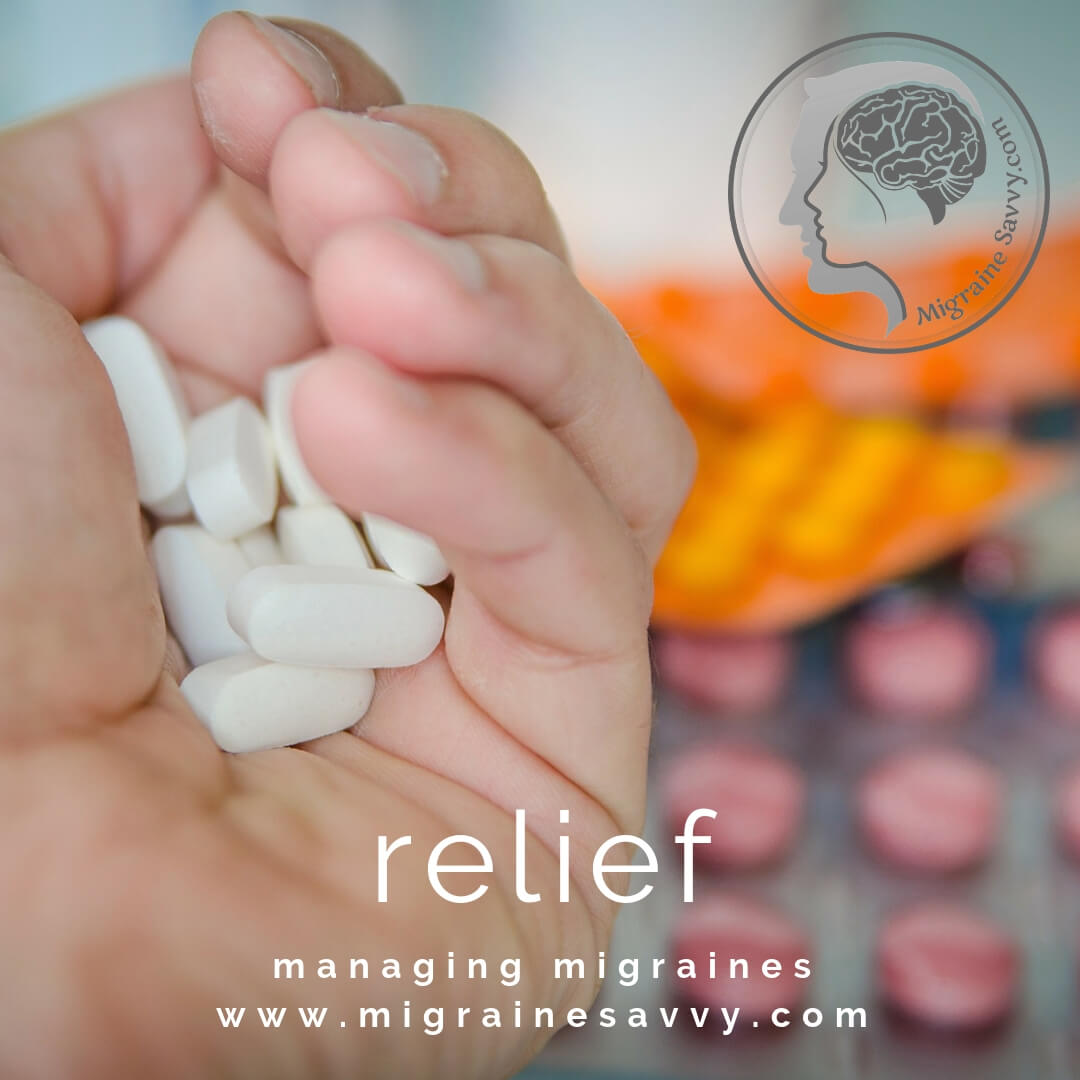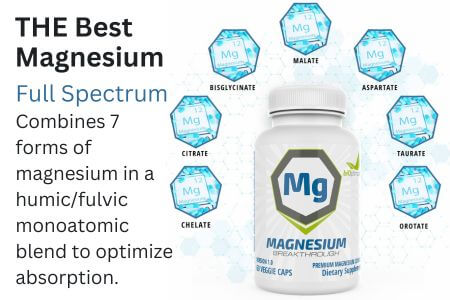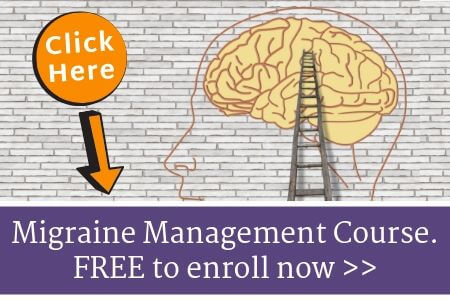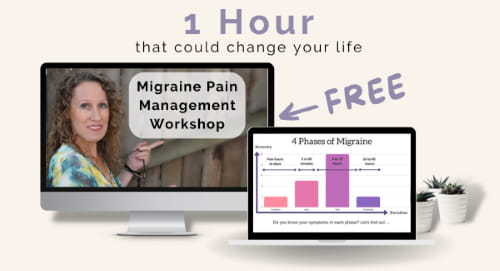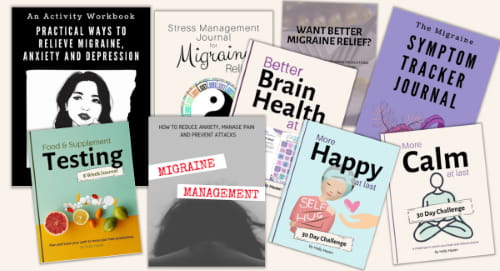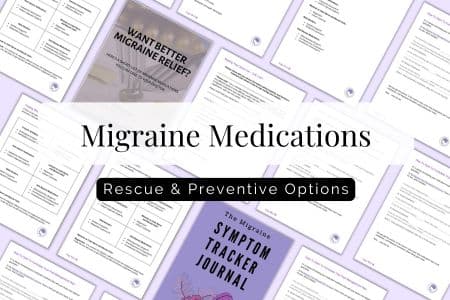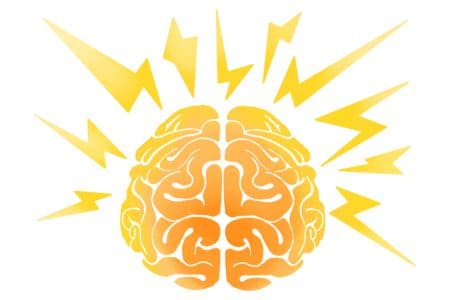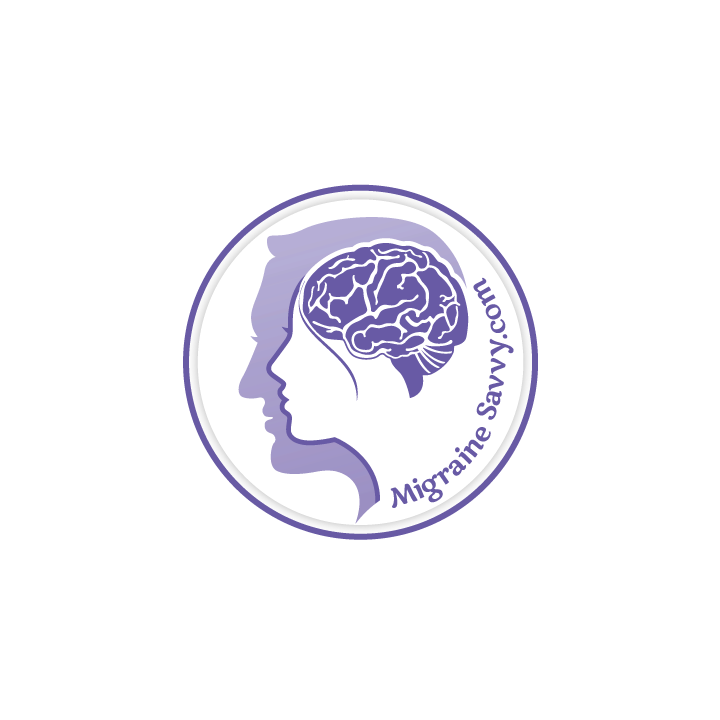- Home
- Medications
- Over the Counter Migraine Medication
Over the Counter Migraine Medication: Get The Best One
Not all over the counter migraine medications are the same. Do you know which one to take to help stop an attack from progressing? They all have different functions in the body. Some over the counter painkillers aim to reduce fever, while others reduce inflammation.
And "over the counter" means you don't need a prescription from your doctor, you just walk in and buy it at the pharmacy.
It's important to know the difference so you know which one to choose when you most need it. Don't make the mistake of just taking what's already in the house.
Taking the wrong thing increases your risk of overdose. If the painkiller doesn't efficiently stop any pain, you might be tempted to take more to get more relief. But it doesn't always work that way. At least not with migraines.
It is important to distinguish the difference between tension headaches, severe migraines, and to use prescribed abortive medications along with OTC migraine targeted painkillers where appropriate.
Your first port of call on this is your doctor.
Just to be clear, all of this means that over the counter (non prescription) painkillers have the potential to make the pain worse for us migraineurs. There are only a chosen few we should consider. Here's the first one...
In clinical studies, after taking Excedrin® Migraine, even patients with tough migraines experienced a noticeable reduction in pain within 30 minutes, effective relief with just one dose, lasting relief, and major improvements in their ability to take part in normal activities.
Using aspirin alone, or any of them alone, should not be considered an effective way to treat severe migraines. They do differentiate between treating mild and severe pain levels. And you can combine one with caffeine to get better results... but you must know the ingredients first. They may already contain caffeine.
My #1 Choice in Magnesium Supplementation
It is critical that you get the right diagnosis from your doctor when you experience any head pain.
Which Over The Counter Migraine Medication Works Best?
Finding out which one works best for you might be trial and error. And... if you have a few that work for you, even better. This means you can use a different one for a different migraine to help you avoid rebound headaches.
I think this is worth repeating... be careful what over the counter migraine medication you choose. Ineffective ones could cause you to take more and risk an overdose. Test them with normal headaches (if you get them), and don’t wait til you’re desperate.
Check with your doctor. Here a few notes so you can see the points of difference and what else is in what you're taking.
Excedrin Migraine Capsules
For moderate to severe migraines.
The first non-prescription medicine approved by the FDA to treat all the symptoms of a migraine. As a result, your doctor may recommend that you try this before a more expensive prescription drug.
Excedrin Migraine contains: 250 mgs acetaminophen, 250 mgs aspirin, and 65 mgs therapeutically active caffeine. [1]
An important thing to also be aware of are the inactive ingredients. Fillers and such we ingest along with the medication.
Inactive ingredients: "benzoic acid, carnauba wax, hydroxypropylcellulose, hydroxypropyl methylcellulose, microcrystalline cellulose, mineral oil, polysorbate 20, povidone, propylene glycol, simethicone emulsion, sorbitan monolaurate, stearic acid.
May also contain: FD&C blue # 1, titanium dioxide." [5]
The clinical studies showed that after taking this product, patients with moderate to severe migraines experienced a noticeable reduction in pain within 30 minutes.
It might work for more mild attacks or in combination with a triptan for more intense attacks.
- Acetaminophen on its own, relieves pain and reduces fever.
- Aspirin is a nonsteroidal anti-inflammatory drug (NSAID). It reduces pain and inflammation
- Caffeine is a vasoconstrictor. "In Excedrin Migraine, caffeine works to narrow blood vessels in your brain. This decreases the amount of blood that can flow through the blood vessels at one time. This action helps combat headaches, which happen when blood vessels widen." [1]
Aspirin
Reduces pain and inflammation, swelling and irritation.
Aspirin reduces: pain and inflammation including swelling and irritation. It is a nonsteroidal anti-inflammatory drug (NSAID).
The active ingredient is acetylsalicylic acid.
Inactive ingredients are: Carnauba Wax, Cornstarch, Hypromellose, Powdered Cellulose, and Triacetin. [6]
Aspirin has some serious side effects like stomach bleeding. [1]
If you have liver damage, thyroid disease, or kidney disease, this medication is not the best one for you. Please check with your doctor before you decide to use aspirin for migraine prevention.
You need to find something that will sustain pain relief long term.
You will not just get one migraine... you need a long term pain management strategy.
Advil Migraine - Liquid Filled Capsules
Relieves: mild pain, fever, nausea, sensitivity to light and sound.
Advil is clinically proven to relieve mild migraine pain and relieve related symptoms like nausea, sensitivity to light and sound.
Active ingredient in each capsule: solubilized ibuprofen equal to 200 mg ibuprofen (NSAID) - (present as the free acid and potassium salt). [2]
I have to be a little skeptical here - the advertising goes on to say control your migraines. This over the counter migraine medication did not reduce pain for me, at all.
Plus, it has the longest list of inactive ingredients. This is from their product label from 2011: "acetylated monoglycerides, colloidal silicon dioxide, corn starch, croscarmellose sodium, methylparaben, microcrystalline cellulose, pharmaceutical glaze, pharmaceutical ink, povidone, pregelatinized starch, propylparaben, sodium benzoate, sodium lauryl sulfate, stearic acid, sucrose, synthetic iron oxide, titanium dioxide, white wax." (fda.gov)
It's the only FDA approved over the counter migraine medication in a liquid filled capsule (at time of writing).
Paracetamol (Acetaminophen)
Treats mild to moderate pain and fever.
Paracetamol is one of the most frequently used OTC medicines for pain relief here in Australia.
Paracetamol is known as Acetaminophen in the USA.
It is the active ingredient. Each tablet also contains "inactive: potato starch, pregelatinised maize starch, talc, colloidal silica and magnesium stearate (E572)." [4]
It is commonly used to treat mild to moderate pain and fever in children. It does not help my migraines, but I can take it for tension headache relief.
Ibuprofen (Advil, Motrin IB)
Anti-inflammatory. Treats mild to moderate pain and fever.
Ibuprofen is used to reduce fever and treat pain or inflammation caused by many conditions such as headache.
It is the active ingredient. "The tablets also contain microcrystalline cellulose, lactose, hypromellose, croscarmellose sodium, sodium lauryl sulfate, magnesium stearate, french chalk, colloidal silicon dioxide, titanium dioxide (E171)." [4]
Ibuprofen may also be used to treat mild to moderate pain and fever. Unlike paracetamol, ibuprofen can also reduce inflammation. It is a type of drug called a non steroidal anti-inflammatory (NSAID) that reduces inflammation.
This over the counter migraine medication works by reducing hormones that cause inflammation and pain in the body. [4]
It's what I rely on for my migraine management.
In Conclusion
Sadly, I can't tell you the best migraine meds to take for your body. As you may already know, finding what works effectively can be somewhat trial and error! What works for me may not work for you.
And they all come with side effects. So make sure you do your homework if you are planning to take these for long term migraine management. And test, test, test to find what works so you're ready when you need it most.
Most over-the-counter headache medicines are only helpful for people who have mild or moderate, rather than severe, migraine pain. [3]
Last But Not Least... Be Safe... Be Smart
BE SAFE... Always buy your over the counter migraine medication from a reputable source.
Always buy your over the counter migraine medications from a reliable and reputable source.
Find a good local pharmacist where you
can ask questions in person or by phone.
Go somewhere your doctor uses and trusts. Safe is best when it comes to buying any medications, OTC or prescription.
Click here for more products in the pain relief store.
Ready to take the next step?
Choose the next step that fits where you are right now.
MIGRAINE MEDICATIONS Related Articles
Over the Counter Migraine Medication Resources:
1. Healthline (2016) Excedrin Migraine: Side Effects, Dosage, and More. Available [online] at: https://www.healthline.com/health/migraine/Excedrin-migraine
2. Drugs.com (2018) DRUG FACTS. Available [online]: https://www.drugs.com/pro/advil.html
3. MyDr (2017) Migraine treatment options. Available [online] at: http://www.mydr.com.au/first-aid-self-care/migraine-treatment-options
4. Drugs.com (2017) What is ibuprofen? Available [online] at: https://www.drugs.com/ibuprofen.html
5. Drugs.com (2018) EXCEDRIN Extra-Strength Pain Reliever (Bristol-Myers). Avaliable [online] at: https://www.drugs.com/drp/excedrin-extra-strength-tablets-caplets-and-geltabs.html
6. Livestrong.com (2017) Ingredients of Bayer Aspirin. Available [online] at: https://www.livestrong.com/article/67606-ingredients-bayer-aspirin/
